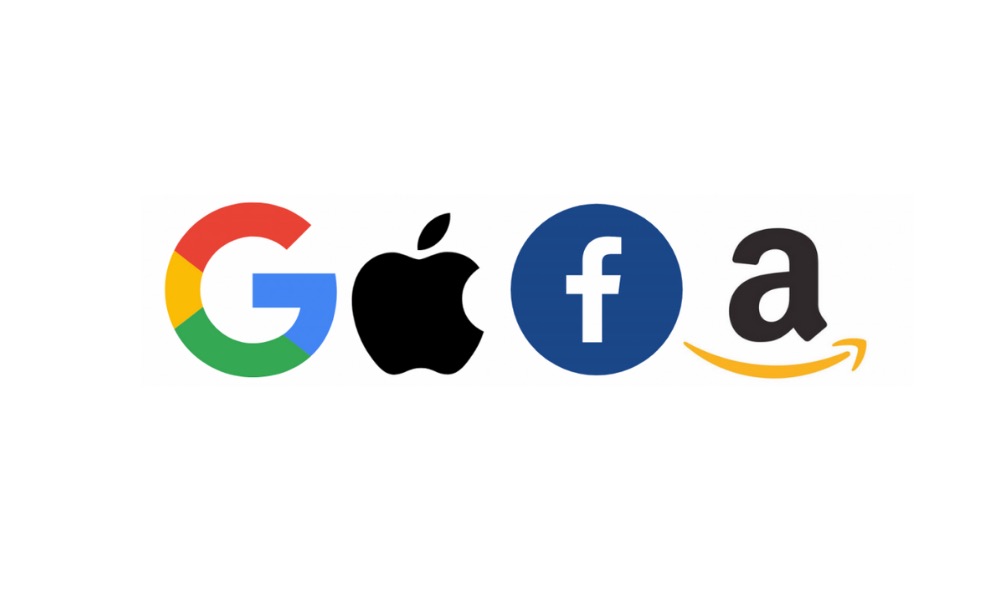We might live in a very different world in 5-10 years. More countries are growing interested in breaking up the tech monopolies.
It may all boil down to just one case too. Can you imagine? For nearly a year, Google’s acquisition of Fitbit has angered regulators around the world.
While not the biggest acquisition that goes to Dell to purchase EMC for $67 billion in 2015, it may be the straw that broke the camel’s back.
Japan is now planning to join the US, and the EU is investigating antitrust and anti-competitive practices. While the fight is far from over, this could signal a major industry turn.
What’s So Bad About Big Tech?

We’ve all gotten used to household names like Amazon, Apple, Facebook, Microsoft, Google, and so on. While they may be an indispensable part of your life, they also pose an immediate risk to you.
More competition means lower prices and more innovation. It also means less power and money in a few hands.
This is a big deal. It’s hard even to conceptualize now, but you have to go back over 100 years to the original modern monopolies. Companies like US Steel, Bell, and the American Tobacco Companies were massive in the US.
It was a bad thing. It made it impossible for smaller businesses to compete because of the massive economies of scale at play and distribution networks. Likewise, these corporations often had poor employee practices and could effectively set their own prices.
When the US broke them up, it was a major game-changer. For example, breaking up Bell into the Baby Bells in the 1980s helped launch the mobile communications era.
The argument nowadays is that breaking up Big Tech will do the same. Many of these companies have reached a critical mass that rivals their 20th-century counterparts.
Why Is Japan Getting on-Board a Big Deal?
Japan is the third-largest economy in the world, so that alone is enough to spark change. But by focusing on anti-competitiveness, it will make it harder for major companies like Amazon and Apple to dominate global markets.
For Amazon, Japan is its fourth-largest market. Meanwhile, Apple sits on 60% of Japan’s mobile device market. Changes here will hurt sales and growth potential for the tech behemoths.
Further, if Japan consolidates efforts with the US and EU, it will effectively leave only China—a very different and unique case—as an undisturbed market.
These are still early days, but this may change the tide towards the antitrust side’s favor.
What Can You Do to Help Take on Big Tech?
We’re not saying you have to boycott Apple, Amazon, or any of your favorite players. But it is time to start paying attention.
Like, have you ever considered how much Google dominates your life. You wake up and check Gmail, you do some searches then browse YouTube videos. This is a key reason why regulators are so fixated on the Fitbit deal. By entering health, Google really will be in every part of your life.
The first thing you should do is start taking control of your data. Data is your most valuable asset. It’s how Google, Facebook, and other companies not only create their products but support their bottom-line.
Simple steps like using a VPN help get your data back under your control. What is a VPN? A VPN or virtual private network both encrypts your internet connection and masks your IP address. The result is a much more secure and private web experience.
When you combine it with privacy-centric browsers and other security tools, you effectively minimize your digital footprint. This not only cuts down on the data big tech collects you on but also other threats like hackers and advertisers.
You should also consider supporting the little guy when you can. You can’t entirely replace Facebook. But you can use DuckDuckGo to search the web without Google tracking what you do.
The same is also true for most other products, including Signal instead of Whatsapp, ProtonMail for email, and more.
Finally, take a little time to write your Congressperson. Let them know this issue is important to you, and you want them to stand up for it. It may seem old school, but these emails and letters do eventually get read. Japan has joined the EU and the US. That’s good news for everybody. Keep a close eye out because we may see a big tech transformation within a very short time.
Disclosure: We might earn commission from qualifying purchases. The commission help keep the rest of my content free, so thank you!



